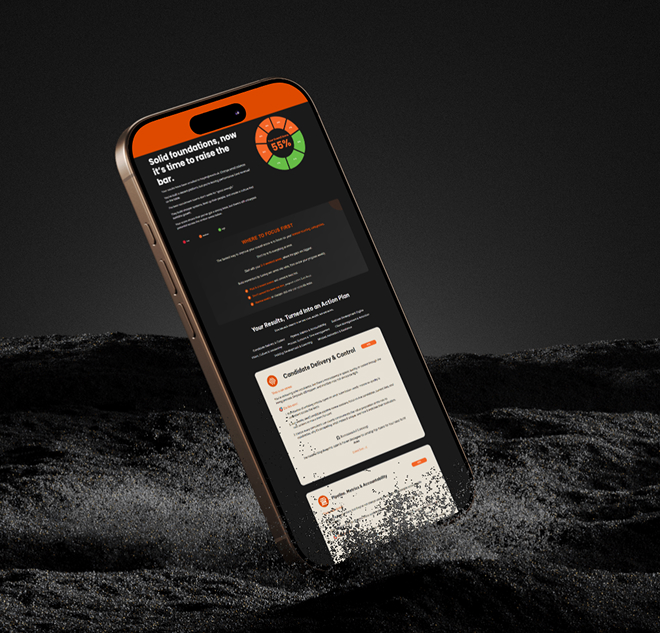Why KPI’s should be your best friend
I can see you rolling your eyes already.
For those of us who have been in the industry a hot minute, we’ll be very familiar with KPIs and probably have a love-hate relationship with them.
They’re not all doom and gloom – in fact, they’re a core part of building a successful career as a recruiter.
However, the attitude towards KPIs by a lot of new-gen (and even old-school recruiters) has demonised them in ways, using a “non-KPI-driven environment” as a selling point when looking to hire recruiters.
We’re going to unpack the top 5 reasons why you need KPIs as well as our 3 key tips for implementing them effectively.
Why do we need KPIs?
#1 Unless you’ve forgotten, we’re in a sales job
Salespeople need KPIs – it’s a key way to measure performance but it’s also to ensure that you’re motivated and can keep yourself on track.
Although recruitment can come in many different forms (and businesses can operate differently) at its core, it’s still a sales role.
Although you aren’t selling a product, you are still selling a service and a tangible commodity!
Even if you work in executive search or purely on retained projects, it’s still sales.
Salespeople need targets, and KPIs can be seen as a form of targets – need I say more?
#2 Track yours and your team’s progress
KPI stands for key performance indicator.
Understanding your teams progress is key, especially if you’re a billing manager (or even non billing).
You need to know who is doing well, who needs help, and what the blind spots are. You can only see this through data collection (KPIs).
Especially if you run a big team, or you have a team with junior consultants, you want to keep your finger on the pulse of what people are doing.
#3 Create formulas for success
KPIs can be your magical recipe to create formulas for success.
It may be KPIs specific to business development, it may be KPIs specific to a candidate networking event that you’re hosting.
Either way, KPIs enable you to chop and change formulas for success and understand what is (and isn’t) working.
#4 Use them to motivate and inspire
As mentioned, I think a lot of us have seen KPIs as the devil.
Maybe you were hounded for your phone times or the amount of CVs sent, or maybe your KPIs simply didn’t make sense.
It can be difficult to understand the value of them if you feel like there’s no logic behind the KPI’s that you’ve been set.
Instead, KPIs should be used to motivate and inspire consultants to do better for themselves and keep themselves accountable.
#5 Self-accountability
And finally, accountability.
Although we are great salespeople as recruiters, we have a small habit of getting lazy if our minds aren’t busy.
Having varied KPIs enables managers to keep their consultants accountable, but also allows consultants to develop and embrace self-accountability.
Knowing how you’re performing and recognising your blind spots is a valuable trait to possess. KPIs allow for better self-accountability – it’s fact.
How can you implement them effectively?
#1 Use them for tracking progression, not tracking failure
Again, a lot of us may have been beaten by the KPI stick in the past, when the reality is that KPIs should be seen as a positive thing (to track progression) rather than something negative (tracking failure).
It isn’t inspiring as a recruiter to know that your KPIs are there to highlight your faults.
Instead, it’s crucial to flip the narrative and frame KPIs as a way for continuous improvement, not highlighting how bad someone is at the job.
#2 Make sure everybody has KPIs, not just juniors
It shouldn’t be one rule for a senior consultant and one rule for an associate consultant.
Although their KPIs will be different due to their seniority, everybody should have KPIs and everybody should be kept accountable.
#3 Amend them – change is good
The reason why some recruiters become sick of KPIs is because they’re continuously measured the same.
There’s no variety or even an opportunity to switch KPIs up, when in reality your KPIs should be changing depending on what the market is like, the seniority you are, as well as what your goals are, too.
Change shouldn’t be seen as a bad thing – keep your KPIs fresh to keep you and the rest of your team on their toes.


